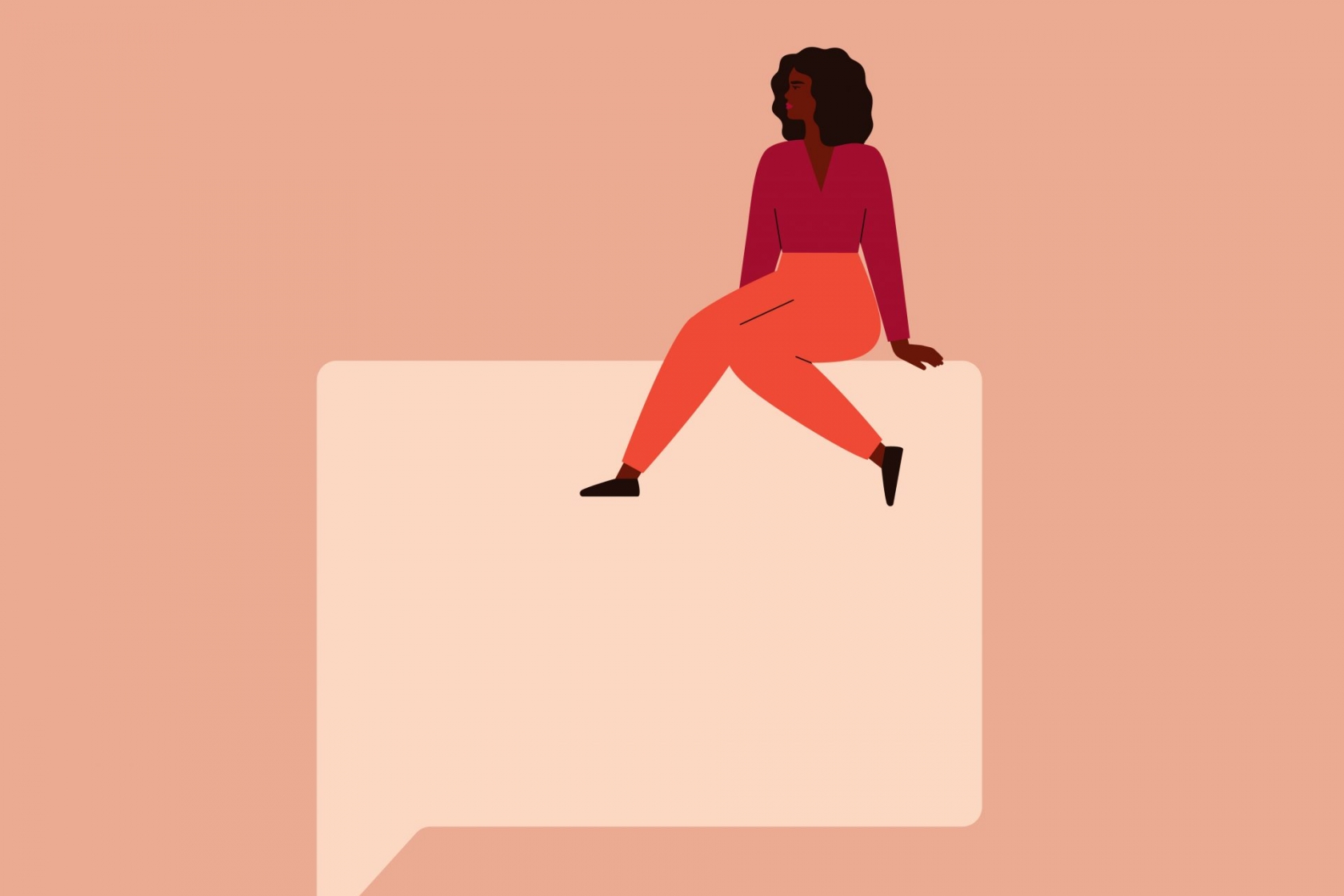Why you can’t stop doubting yourself in social situations
Counsellor and psychotherapist Amina Ispahani explains why so many of us are struggling with anxiety around socialising now lockdown is easing – and how to confront these difficult emotions in a healthy and constructive way.
Getting back to ‘normal life’ as lockdown eases certainly hasn’t come without its challenges. From dealing with anxiety about leaving the house to navigating the exhaustion of simply doing things, there’s been a lot to overcome.
However, for many of us, there’s been another rather frustrating obstacle to overcome as restrictions ease: learning how to feel comfortable socialising again.
Whether you’ve found yourself ruminating over things you said during a conversation, feeling self-conscious about how you look and sound or simply felt less confident about your ability to hold a conversation, you’re not alone.
“For many of us, lockdown has meant a significant decrease in the number of interactions we have, so it’s entirely natural to experience heightened anxiety as we attempt to re-socialise after a year of limited connection,” explains Amina Ispahani, a counsellor and psychotherapist at My Talking Space.
“The majority of our interactions have been over a screen and we have spent an unnatural amount of time at home. We may be struggling with conflicted feelings around coming out of lockdown and notice ourselves feeling more self-conscious, having heightened anxiety and ruminating over interactions that would usually wash over us.”
Ispahani adds that, because lockdown has created “endless space” for us to reflect upon our relationships and the way we navigate the world, the anxiety you’re experiencing may also be down to you processing some of this as you re-enter social situations.
“Lockdown has surfaced uncomfortable feelings for many of us, including struggles in our relationships and with our own self-esteem,” she says.
While it’s important to note that these kinds of doubts and anxieties are completely normal after the circumstances of the last year, Ispahani believes that taking the time to recognise these emotions and “sit with” your feelings could also be beneficial, as it could help you to unpick any harmful unconscious beliefs you have about yourself and the world around you.
“If you notice you’re doubting yourself in an interaction, rather than pushing the feeling aside, try to sit with it. You may find that a response to a small interaction is tapping into a deeper-rooted, unconscious belief you have about yourself,” she explains.

“It may help to ask yourself questions such as: Can I name this feeling? Is it familiar to me, and if so, where have I felt it before? How far back does this feeling go for me? What is the fear or belief attached to this feeling?
“Just through naming your feeling and recognising the root belief, this can help ease the rumination, validate your response and enable you to empathise with yourself more deeply.”
It may sound confusing at first, but when applied to a real-life situation, it makes a lot of sense. For example, say you’ve just got back from seeing a friend, and you start to worry that you were annoying or said too much. It may feel like that’s the case, but if you step back from the situation, you’ll be able to see that it’s an irrational thought: they’re your friend, so chances are they don’t find you annoying, and you’re probably all saying a lot because you’re excited to see each other again.
Now that you’ve been able to recognise this irrational thought, don’t just push it aside – sit with it and try to see where that belief is coming from. What kind of beliefs or fears are fueling that response? Are you worried about losing friends? Of not having enough? Of having others think bad about you? And where do those worries come from?
While it might not seem natural to pick apart your feelings like this at first, working out where your feelings of anxiety are coming from – and challenging any unhelpful thought patterns you might be harbouring – can be hugely beneficial in the short and long term; by recognising your negative thought patterns, you’ll be more aware of what’s going on in the future and put yourself in a better place to build healthy, self-compassionate thought patterns instead.
Indeed, as Ispahani explains: “Understanding our emotions can uncover deep-rooted beliefs we weren’t aware of. This can be a painful process however it is incredibly helpful in the long run.
“It can help us to understand and process our feelings more easily and enable us to meet ourselves with compassion when we have strong reactions to things. This, in turn, can help us to cope better day-to-day and generally be kinder to ourselves.”
Although it can be hard to sit with your emotions and interrogate what’s going on inside your head, using this exercise when you’re next feeling unsure or anxious could be a good place to start doing that.
As Ispahani says, not only is it a great way to ease some of the rumination or anxious thoughts you might be dealing with while socialising, but it can also be a useful tool to help you be kinder to yourself in the long run.
If you, or someone you know, is struggling with their mental health, you can find support and resources on the mental health charity Mind’s website and NHS Every Mind Matters or access the NHS list of mental health helplines and organisations here.
If you are struggling with your mental health, you can also ask your GP for a referral to NHS Talking Therapies, or you can self-refer.
You can also call the Samaritans in the UK on 116 123 or email [email protected] for confidential support.
Images: Getty
Source: Read Full Article


